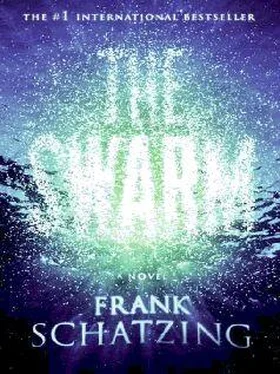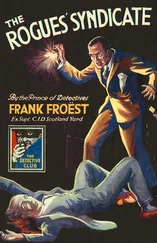'This could take a while,' said Akesuk.
'Yep, we'll lose some time.' Anawak knew what it meant to drive a sled round cracks.
Akesuk's nose wrinkled. 'I wouldn't say that. Time stays the same whether we travel due east or take a detour further north. Out here it doesn't matter when you arrive. Don't you remember? Your life doesn't stop unfolding because you take a longer route. No time is wasted.'
Anawak was silent.
'You know,' his uncle added, with a smile, 'maybe the biggest problem we've had to face in the last hundred years was the qallunaat bringing us time. They believe that time spent waiting is time wasted – wasted lifetime. When you were a child, we all thought so. Your father did so too, and because he couldn't see any way to do something useful with his life, he decided that it was worthless, just wasted time. A life not worth living.'
Anawak turned towards him. 'Don't feel sorry for him. Feel sorry for my mother,' he said.
'Well, she felt sorry for him,' Akesuk retorted, and said something to Mary-Ann.
They had to travel several kilometres until the crack had narrowed enough to cross. One of the Inuit drivers unhitched his snowmobile and revved it at high speed over the gap. Then he threw ropes across to the qamutiks and pulled them one by one to safety. The journey continued. Anawak's uncle pushed a strip of something fatty into his mouth. He held out the tin to Anawak.
It was narwhal skin. During Anawak's childhood, they'd always taken it on journeys to the floe-edge. It was an excellent source of vitamin C, he remembered – far better than oranges or lemons. He chewed, and the flavour of nuts filled his mouth. The taste evoked a string of pictures and emotions. He heard voices, but they didn't belong to this expedition: they came from the people he'd been travelling with twenty years earlier. He felt the caress of his mother, stroking his hair.
'Cracks in the ice, pressure ridges…' His uncle laughed. 'Well, this certainly isn't a freeway. Come on, be honest, you must have missed something of this?'
Anawak shook his head. 'No,' He said and immediately felt ashamed.
ANAWAK HAD SPENT most of his life on Vancouver Island, and had dedicated himself to marine biology, so he was bound to feel more of an affinity with nature than with any man-made construct. Yet whale-watching in Clayoquot Sound was quite different from sledging across a featureless expanse of white, gliding over the strait towards the ocean, with brown tundra on the right and the glaciated peaks of Bylot Island to the left. While the climate in western Canada seemed to have been designed with humans in mind, the Arctic was spectacularly hellish: fantastically beautiful, but sufficient unto itself, and fatal to anyone deluded enough to think that humans could conquer it. The settlements looked like a stubborn attempt to take ownership of a land that defied subjugation. The ride in the qamutik to the floe-edge resembled a journey into the unconscious.
Anawak's sense of time had abandoned him after another night in the midnight sun. They were on their way to the earth's primal source. Even someone as rational as Anawak, who could find a scientific explanation for everything, suddenly saw the logic in the old Inuit story of why the polar bear padded mournfully over the ice. Its love for an Inuk woman had clouded its judgment. The bear had warned the woman not to tell her husband about their illicit meetings, but when the hunter returned after weeks of tracking in vain, she took pity on him and told him where her lover could be found. The bear heard her treachery, and while the hunter went to look for it, it crept to her igloo, intending to kill her. Raising its paw, it was overcome with sorrow. Not even her death could undo the betrayal. It trudged away.
Anawak's skin prickled with the cold.
Whenever Nature had allowed man to approach, her trust had been betrayed. Since then, so the legend continued, man had been attacked by polar bears. This was the bears' kingdom. They were stronger than man, but in the end mankind had defeated them and, in so doing, had defeated itself. Although Anawak had turned his back on his homeland for the best part of two decades, he was well aware that industrial chemicals, like DDT and highly toxic PCBs, were transported by the wind and the currents from Asia, North America and Europe to the Arctic Ocean. They accumulated in the fatty tissue of whales, seals and walruses, which were eaten by polar bears and humans, who fell ill. Breastmilk from Inuit women contained levels of PCBs that were twenty times higher than the amount listed as harmful by the World Health Organisation. Inuit children suffered from neurological impairments, and K levels were falling. The wilderness was being poisoned because the qalhinaat still couldn't, or wouldn't, grasp the way in which the world worked: sooner or later, everything was distributed everywhere, through the winds and the water.
Was it any surprise that something at the bottom of the ocean had decided to put a stop to it?
After two hours of sledging over the ice they veered right towards the coast of Baffin Island. Stiff from sitting down for so long and from bracing themselves against the bumpy ground, they trudged over the flat ice and up on to the land, past rocks covered with lichen and towards the snow-free tundra. Individual flower buds dotted the mossy waterlogged ground: crimson saxifrage and cinquefoil, colours glowing against the boggy soil. The group had chosen the right time of year to come here. In summer the place would be buzzing with flies.
The ground rose gently. One of the guides led them on to a plateau with a view of the ocean and the snow-capped mountains. He pointed out the remains of an ancient Thule settlement and showed them two plain crosses that marked the graves of German whalers. Some siksiks, or Arctic ground squirrels, chased each other over the plains, disappearing into burrows in the ground. Mary-Ann picked up some stones and juggled them deftly. It was an Inuit sport, as old as the hills. Anawak tried to copy her, but his efforts provoked a roar of collective laughter. The slightest thing, like someone slipping, always had the Inuit in stitches.
After a quick lunch of sandwiches and coffee, they crossed an even wider lead in the ice and headed for Bylot Island. Meltwater spurted in all directions beneath the skidoos' rubber tracks. Pack ice piled up in odd formations, blocking their path and necessitating further detours, but it wasn't long before they were gliding beneath the cliffs of Bylot Island. The noise of squawking birds filled the air. Kitti wakes were nesting in the rocks in their thousands. Great flocks circled the cliffs. The convoy halted.
'Time for a walk,' announced Akesuk.
'We've only just had one,' said Anawak.
'That was three hours ago, my boy.'
Unlike Baffin Island's gently sloping tundra, the shoreline of Bylot Island rose precipitously out of the water. The walk turned into a climb. Akesuk pointed to a trail of white bird droppings leading down from a crevice in the rock, high above their heads. 'Gyrfalcons,' he said. 'Beautiful creatures.' He made curious whistling noises, but the falcons wouldn't be tempted out. 'If we were further inland, we'd have a good chance of spotting them. We'd probably see a few foxes, snow geese, owls, falcons and buzzards.' Akesuk smiled ironically. 'On the other hand, we might not. That's the Arctic for you. You can't count on anything. An unreliable lot, these animals – just like the Inuit, right, Leon?'
'I'm not a qallunaaq, if that's what you're suggesting,' Anawak protested.
'Good.' His uncle sniffed the air. 'We'll spare ourselves the trouble of going any further. Seeing as you're no longer a qallunaaq, you're bound to return. Now, let's head out to the floe-edge – we should make the most of this weather.'
Читать дальше












